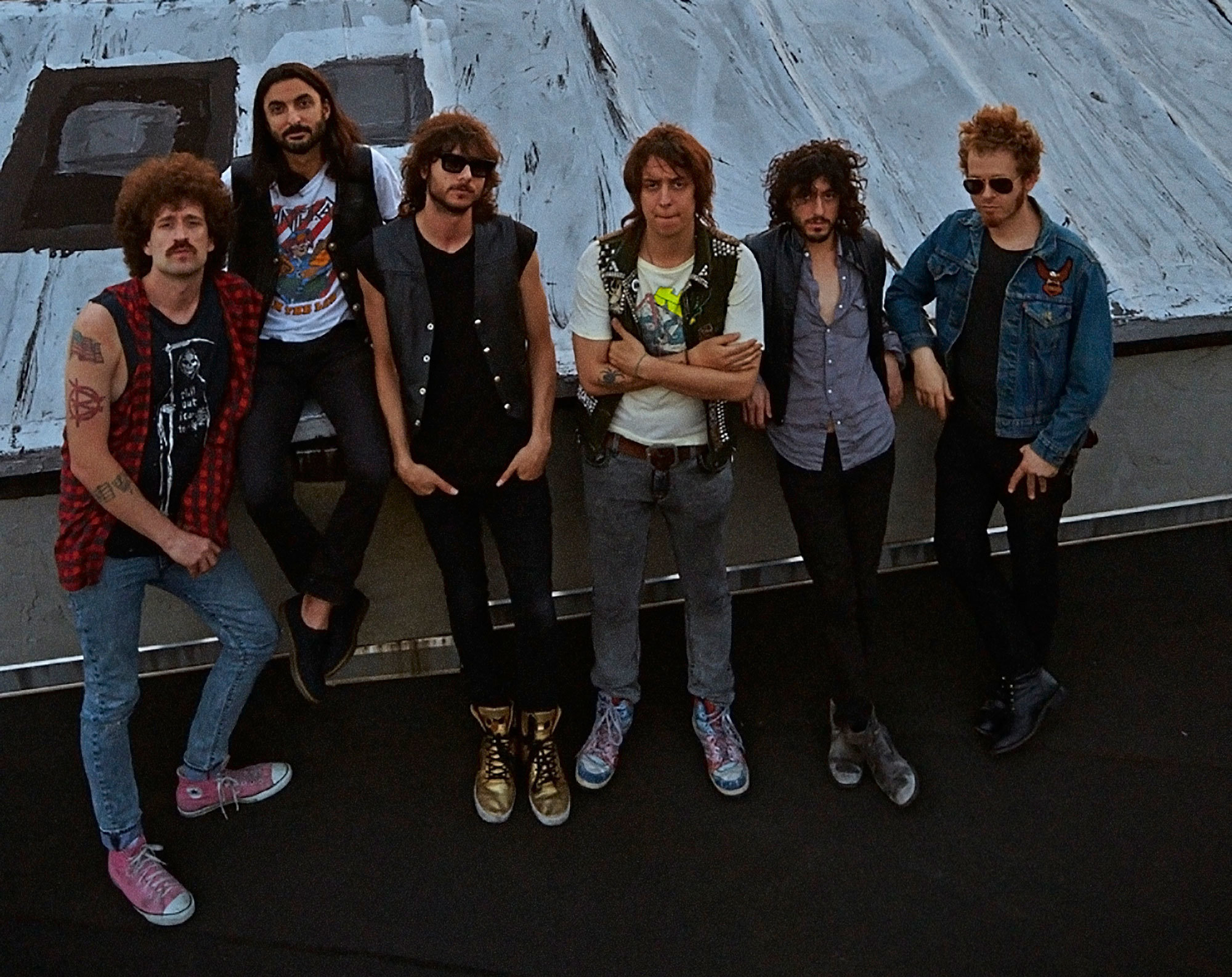“Mediocre artists borrow. Great artists steal.” This aphorism, courtesy of Pablo Picasso, has been used to justify and glorify the theft of ideas, especially in the creative industries.
When it was announced that Strokes frontman Julian Casablancas was embarking on a new side project, calling the band Julian Casablancas + The Voidz, the first thing that sprung to mind was 70s punk band Richard Hell & The Voidoids. Was there a reference in there? Sure enough, when comparing cover art between Richard Hell’s Blank Generation and Julian Casablancas’ Tyranny, the typeface appears to be almost identical. Coincidence?
Richard Hell first rose to prominence in the band Television before branching off and starting Richard Hell & the Voidoids, who have since been credited with inspiring the look of the Sex Pistols (and by extension the rest of the punk rock movement). Hell wore black drainpipe jeans and tight ripped t-shirts with long necklaces, the look that came to be defined as punk. Their first album Blank Generation was recorded at Electric Lady Studios, where some 40 years later, Julian Casablancas would play a live show of his debut solo record Phrazes for the Young.
Casablancas and his Voidz look like they’re straight out of the 70s, with their long hair, studded leather vests and skinny jeans. But their sound is modern, without being genre specific. The core of punk is an unapologetic authenticity – and authenticity will always translate, regardless of decades or trends.
“Tyranny is eclectic,” Casablancas explains. “I would like it to be versatile – ‘yeah, we go there, we could do that’. We can do anything. Hopefully,” he adds with a smile. “This is anti-pop,” keyboardist Jeff Kite adds. “There’s no radio song on the record. There was never an attempt to have a radio song on the record. If there was ever a feeling of ‘Oh, this could be played at a shopping mall or in an ad’ we were like ‘no, let’s go the other way’.”
Eclectic is right. The album ranges from the 11-minute long ballad Human Sadness, to the punk thrasher Business Dog, to the world music-inspired Father Electricity, and so forth. Tyranny is genuine bricolage; “we listened to 70s African records, Turkish records, world music, deep thrash punk. Albums that had their own style,” Kite says.
When I ask Casablancas about Richard Hell & The Voidoids, he seems taken aback. “I mean, I’m aware of the name, maybe it subconsciously swept in,” he admits. Though the name holds obvious similarity (as does their corresponding album typeface), it would be wrong to call Tyranny a pastiche. Julian Casablancas + The Voidz represent punk’s rude health as it enters it’s 35th year.
In a popular TED talk entitled “How sampling transformed music”, DJ and producer Mark Ronson says that for the past 30 years, musicians have “looted from decades of recorded music to create these sonic layered masterpieces. And they weren’t sampling these records because they were too lazy to write their own music, they weren’t sampling these records to cash in on the familiarity of the original stuff; it was all about sampling really obscure things.”
Tyranny is filled with these kinds of samples and references, which might not be particularly obvious at first listen. “We had a night off where we were restless and bored, going in wormholes and watching YouTube footage, and documentary footage from Apocolypse Now,” Julian explains. He describes how the sound of the ghost helicopters from the famous opening scene of Apocolypse Now was sampled for their song Human Sadness, along with “sounds from RoboCop and other 80s sci-fi movies, these crazy robotic sounds.”
Less subtle of an effect is the inclusion of a quote by Rumi, whom Casablancas describes as the “greatest poet ever, in my opinion”, singing “Beyond all ideas of right and wrong there is a field/I will be meeting you there” through the chorus, his voice so distorted you can only make out the lyrics with intense focus.
“We live in the post sampling era. We take the things that we love and we build on them,” Ronson continues. “That’s just how it goes. And when we really add something significant and original and we merge our musical journey with this, then we have a chance to be apart of the evolution of the music that we love.”
Inserting these slight details creates a complex artful piece that allows your appreciation to grow with each listen. “You can’t just hijack nostalgia wholesale,” Ronson says. “You have to take an element of those things, and then bring something fresh and new to it.” If nothing else can be said of the iconoclastic Tyranny, it has certainly brought something fresh and new by reinterpreting and redefining punk for 2014. Without these references and samples, influential bands like Richard Hell & The Voidoids would remain a thing of the past.
Credits
Text Christina Cacouris
Photography Colin Lane
